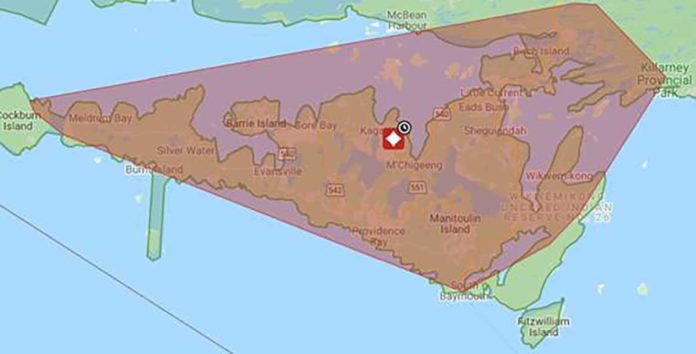First time 1977 bilateral treaty invoked
MICHIGAN – The ongoing battle over the Line 5 dual pipeline running through the Straits of Mackinac between Canadian energy giant Enbridge Inc. and the State of Michigan has again heated up, with Canada invoking Article Six of the 1977 Transit Pipelines Treaty between the US and Canada. Gordon Giffin, legal counsel for the Canadian government, informed the federal judge overseeing the case in a letter that Canada was formally invoking the treaty.
The legal wrangling began when Michigan Governor Gretchen Whitmer revoked a 1950s easement across the Straits of Mackinac, calling the pipeline a “ticking timebomb.” The governor had campaigned on a promise to close the pipeline. The pipeline, which supplies much of the propane used in Michigan, Ontario and Quebec, as well as other nearby states, brings supplies from Western Canada to eastern consumers.
Line 5 is governed by a provision of the agreement guaranteeing uninterrupted transit of light crude oil and natural gas liquids between the two countries, Canada’s Foreign Affairs Minister Marc Garneau said in a statement. “Today, Canada is formally invoking the dispute settlement provision of the 1977 Agreement to ensure its full application.”
Article Six of the bilateral treaty is aimed at resolving disputes over pipelines crossing the border between the two countries. Mr. Giffin’s letter requested the court halt any proceedings related to Michigan’s Line 5 shutdown order while negotiations under the treaty are ongoing. Environmental campaigners criticized that move as a delaying tactic, a position the State of Michigan also holds.
“I am disappointed that the Government of Canada continues to align itself with Enbridge’s desire to keep using State-owned lands to pump oil through the heart of the Great Lakes, threatening our most precious public resources,” said Michigan Attorney General Dana Nessel in a statement, dismissing the letter and asserting it had no legal basis for holding up the case.
The case currently being heard in a US federal court is a long way from the end of the line for the dispute. This case was instigated by Enbridge in order to determine whether the case should be heard in federal or state court. The latter it is anticipated would favour the state’s case.
The legal wrangling is expected to take several years. In the meantime, Enbridge is pursuing an alternate route for the pipeline, a $500 million tunnel located hundreds of feet beneath the lakebed through the straits. That option is also opposed by environmentalists, who maintain any pipeline expansions would be detrimental to the climate.
Enbridge spokesperson Ryan Duffy has maintained in the past that the only other alternative is a massive increase in rail and truck transport that would present a far greater danger of spills.
Politicians in both neighbouring states and provinces, meanwhile, have sounded the alarm over the potential economic impact of closing down the pipeline, which terminates at refineries in Sarnia, Ontario—citing job losses in the thousands and a threat to energy supplies across the eastern seaboard.
Environmentalists cite the danger of allowing the pipeline to continue to pump 500,000 barrels a day through the environmentally sensitive straits. Projections have shown that currents could bring any major spill to the shores of Manitoulin Island.
Wiikwemkoong Unceded Territories Ogimaa Duke Peltier has added his community’s voice to those of Indigenous communities through whose traditional territories the Line 5 pipeline runs.





